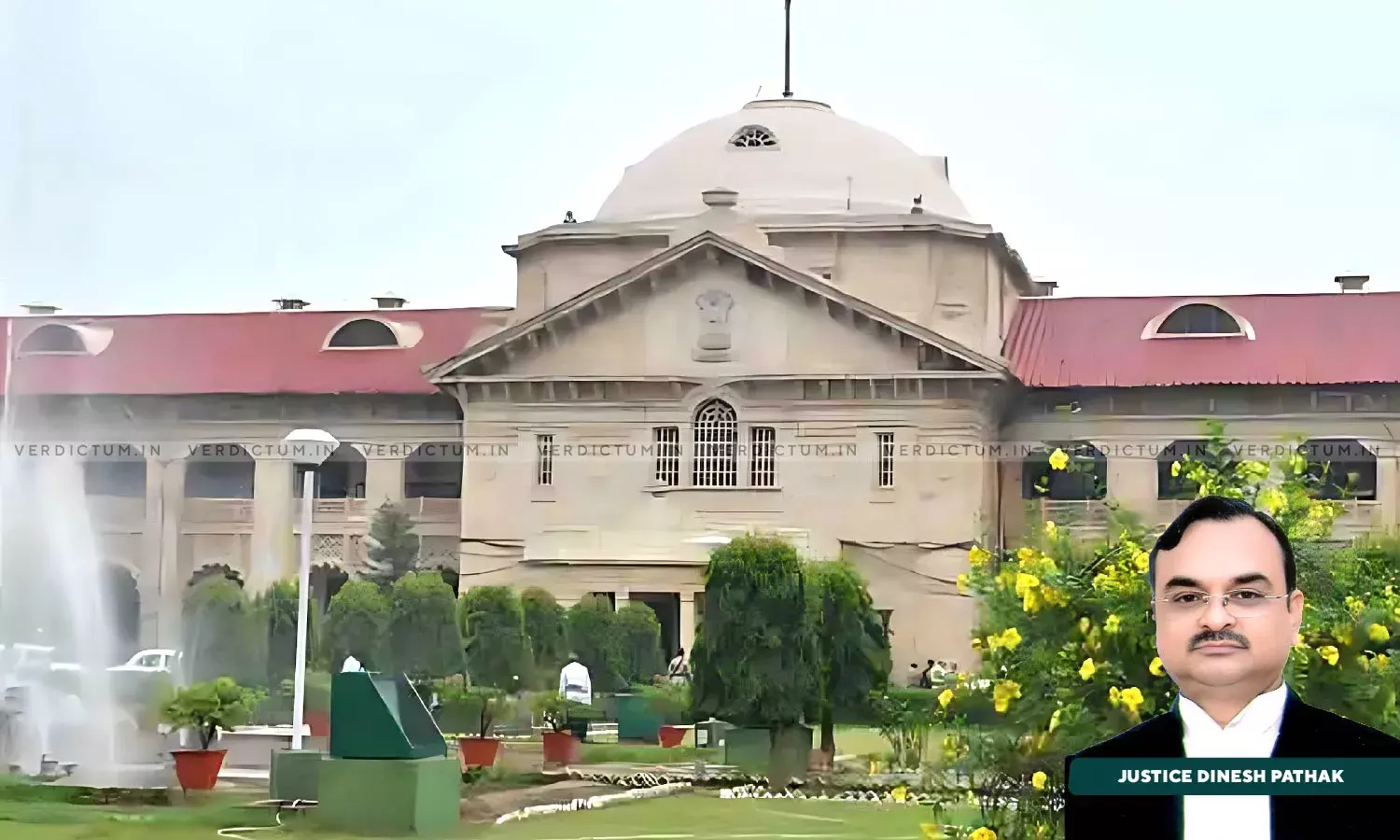UP Municipalities Act| Presentation Of Election Petition Is Completed When It Is Produced Before The Competent Authority In Prescribed Manner: Allahabad HC
The Allahabad High Court observed that, under U.P. Municipalities Act, 1916, presentation of the election petition is completed when it is given/produced/furnished/delivered before the authority competent in the prescribed manner.
The Court also observed that there is no delay in filing an election petition if the same is presented before the Court which deferred its admission and registration.
The Bench of Justice Dinesh Pathak observed, “Thus, it is explicit that presentation of the plaint (election petition) is completed at that very moment, while it was given/produced/ furnished/delivered before the authority competent in the manner as prescribed by the Act, 1916. It would not be out of place to mention that for the purposes of deciding the election petition, the procedure as provided in C.P.C. (Act V of 1998) has been made applicable by virtue of Section 23 of the Act, 1916 which denotes that except so far as may be otherwise provided by this Act or by Rule, the procedure provided in the C.P.C. in regard to suits, shall, so far as it is not inconsistent with this Act or any Rule and so far as it can be made applicable, be followed in the hearing of the election petitions.”
Advocate Shreya Gupta appeared for the Petitioner whereas Advocate Vivek Kumar Singh appeared for the Respondent.
The Court further observed, “On the other hand, even assuming for the sake of argument, as advanced by learned counsel for the petitioner, that election petition was filed belated on 03.07.2023 and registered on 04.07.2023, respondent No. 2 (election petitioner) can’t be punished for the act of court competent who has deferred the admission and registration of election petition presented within time, as discussed above.”
The Petitioner herein was declared successful as the President of Nagar Palika Parishad. Being aggrieved with the results of the election, Respondent No. 2 filed the election petition under Sections 19 and 20 of the Act, 1916 along with an application under Rule 13 of the General Rules (Civil), 1957 (‘Rules, 1957’), during summer vacations, with a prayer to entertain the election petition, which was rejected.
When another application was filed after vacations to admit the Election Petition, the District Judge (Election Tribunal) had simply admitted the election petition filed on behalf of Respondent No. 2 and issued a direction to register the same, and notices were ordered to be issued to other defendants in the election petition except Defendant no.1 who is a Petitioner herein. The Counsel for the Petitioner submitted that the election petition filed is beyond the prescribed period of limitation i.e. 30 days.
The Court held, “It is evident that the election petition was filed/presented well within time on 09.06.23, to wit, within 30 days from the date of declaration of the result, however, the election petition could not be admitted and registered inasmuch as it was filed during the summer vacation and opposite party in the election petition (petitioner herein), who had filed caveat application, has not given his consent to entertain the aforesaid election petition as required under the provisions enunciated under Rule 13 of Rules, Rules,1957. As per Rule 13 of Rules, 1957, consent of the other party is mandatory for the purposes to entertain the suit/election petition during holidays/vacations. Thus, in absence of the consent, learned District Judge has not accorded leave for hearing the election petition. On the said date i.e. on 09.6.2023, learned Election Tribunal has deferred the hearing on admission for 02.7.2023.”
The Court also said that Section 20 of the Act, 1916 denoted that an election petition shall be presented within 30 days. Thus, the phrase ‘‘presented’’ employed under Section 20 of the Act, 1916 has graver importance for deciding the limitation under Section 20 of the Act, 1916, it said.
Accordingly, the Court concluded that the election petition was filed well within the prescribed period of limitation as enunciated under section 20 of the Act, 1916.
Resultantly, the writ petition, being misconceived and devoid of merits, was dismissed.
Cause Title: Shahnawaz Ali v. Election Tribunal District Judge Muzaffarnagar and Ors. (Neutral Citation: 2024:AHC:95285)
Appearances:
Petitioner: Advocates Ravi Anand Agarwal and Shreya Gupta.
Respondents: Advocate Vivek Kumar Singh




